Reply To:
Name - Reply Comment
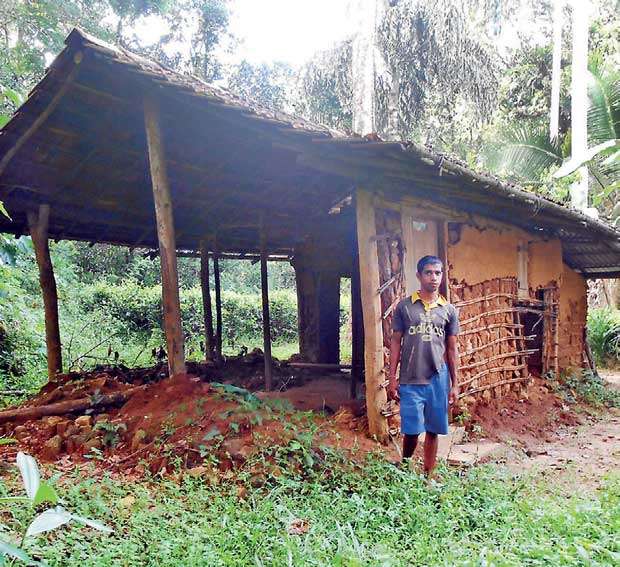
The wattle and daub shelter Nimalsiri lived in before the floods
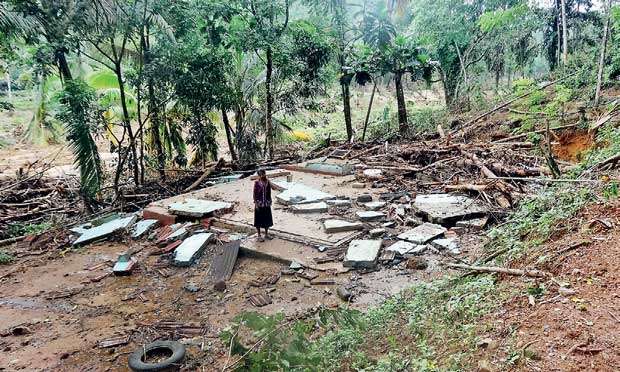
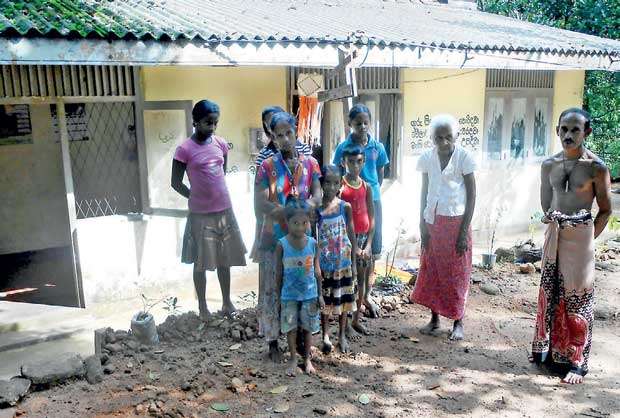
Ariyarathna and his family, still live in a building of the village school
A family of eight children, displaced during the landslide in Muniheenkanda hill that caused much havoc in Kolambewa village in the Ayagama Division in the Ratnapura district on May 26, 2017, has been living in a part of the Kolambewa school building without any attention of the authorities.
The breadwinner of the family, Mawarakanda Watukarage Ariyarane (50) said his family comprises of his elderly mother, wife and eight children was provided temporary shelter in the school building when their house with all household effects were razed to the ground during the disaster.
A vast area of about l0 acres forestation project in the hill had eroded with trees and boulders crashing down to the ground on the three houses at the foot of the hill. Eight people, including seven members of one family were buried alive. The Army and the police searched for the disappeared and found only five bodies.
Ariyaratne’s house was destroyed in the disaster, but the occupants had miraculously escaped death.

We were desperate to find a sustenance to keep at least our noses above the water. Often boiled leaves plucked from the jungle constitute our meal. We received dry ration only for two months
Ariyarathna
“Our village is in the Ayagama division in the Kalawana electorate in the Ratnapura district. We experienced torrential rain from early hours of May 25 last year and at around 8.00 pm, it resulted in a flood threat. Towards midnight, my house was about three feet under water. We left for a neighbour’s house. A little while later a vast area of the hill came crashing down with a deafening noise. Our house with all other belongings, and even school books of my children were buried under mounds of earth. We made a long trek through hard terrain to the house of a known person.
When we heard his house too was endangered with landslide, we went to another house a little distance from the landslide prone area. There were several other displaced families seeking shelter in that house. We spend about a week there until we were given temporary shelter in Kolambewa School which was in abandoned state. We cleared the shrub jungle that had grown up to the roof of the building and occupied the teacher’s quarters. My daughter attained age after four months since we moved in and we celebrated the occasion with traditional custom.
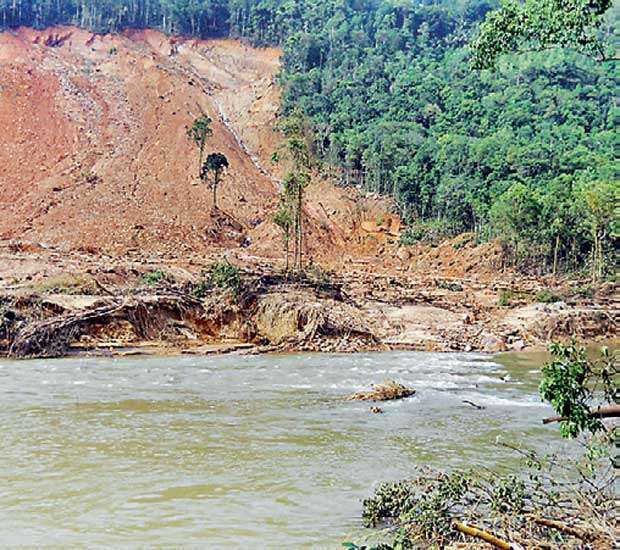
Aftermath of the torrential rain last year
My eldest son had got through his A/Levels with two ‘A’s and a ‘B’, but he was unemployed. We were desperate to find a sustenance to keep at least our noses above the water. Often boiled leaves plucked from the jungle constitute our meal. We received dry ration only for two months,” he said.
The two families appealed to the relevant authorities not to ignore them any more without a fixed abode and said they were prepared to make a livelihood, even as casual workers if they had a permanent house to live in
He requested the authorities to provide them with a plot of land from the state Paragahahena Mukalana and means to build a house without offering excuses attributing to the delay in Geological Survey and Mines Bureau report.
Weragala Hewage Nimalsiri’s family is another displaced family living in the school building. He said his house with all household effects was buried under the huge mound of earth and boulders that came down.
“When our house went under water, we left for a safer location and in the morning we found our house was no more. We lived at a neighbour’s house for a couple of days and shifted to the Kolambewa school building. Ayagama Divisional Secretary’s office provided us with dry rations for about two months. We had depended on the meagre income from a tea small holding, but that too was destroyed by the landslide. Now we are left without any income to run the family.
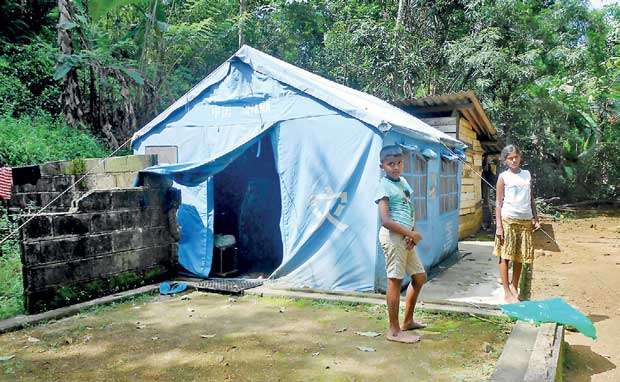
A family forced to live in a temporary tent
The authorities are not concerned about our predicament. Our request for a plot of land and funds to build a house have fallen on deaf ear.” Nimalsiri lamented.
The two families appealed the relevant authorities not to ignore them any more without a fixed abode. They said they were prepared to make a livelihood, even as casual workers or being self-employed, if they had a permanent house to live in.
“We will have nowhere to turn if the authorities decided to eject us from the school building and to use it for any other purpose” they said.
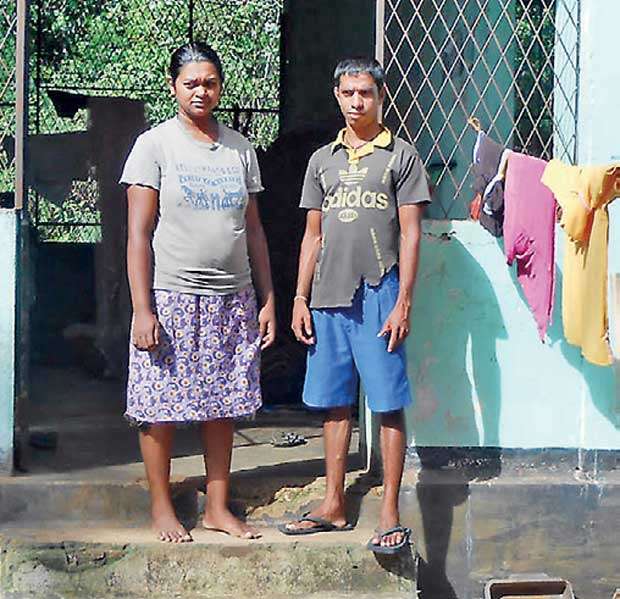
Nimalsiri and his wife are also living in the village school